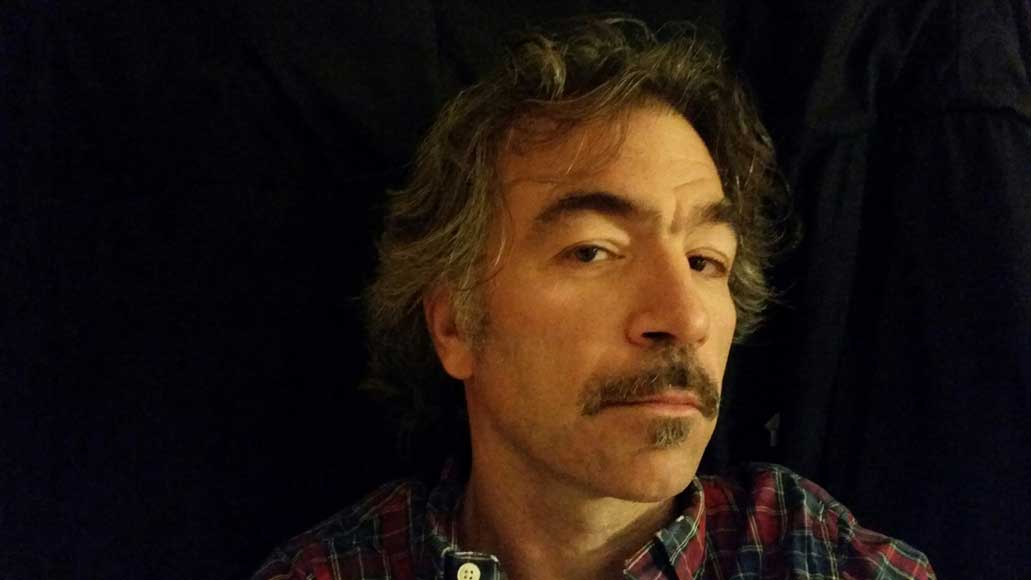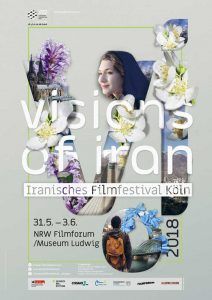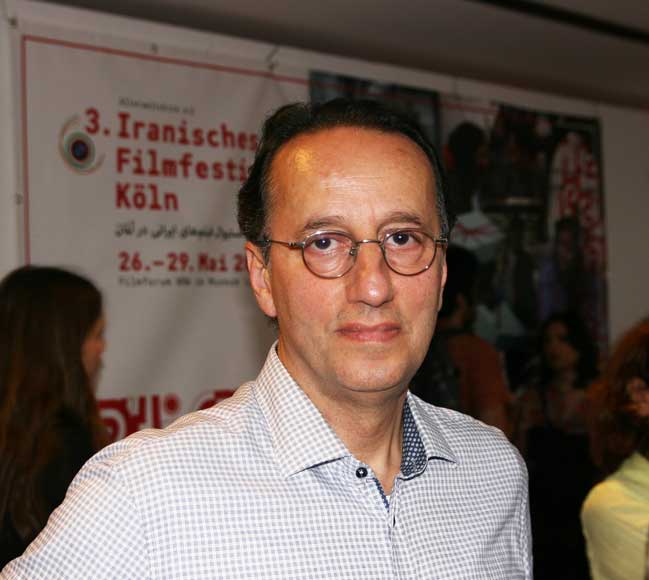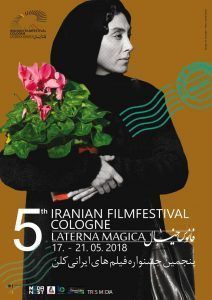May 17, 2018
Cologne is hosting two Iranian film festivals this year. The Museum Ludwig will hold “Visions of Iran,” Iranisches Filmfestival Koln, between May 31 and June 6.The 5th Iranian Film Festival Cologne “Laterna Magica” was held from May 17 to 21.
Both events will give audiences a chance to view a wide selection of the latest Iranian films. This is the fourth year that the city of Cologne has hosted the event. The organizers hope that with the help of the government agencies and the public, the film festival will become an annual tradition.
The documentary series “Karestan” (۲۰۱۳-۱۷) will be screened at the “Vision of Iran.” It comprises six films, each telling the story of individuals whose humanitarian work helps to improve the world around them. Rakhshan Banietemad and Mojtaba Mirtahmasb have collaborated as producers and creative consultants on the series. The audience will also have an opportunity to see three full-length feature films by other Iranian directors.

Amin Farzanehfar has curated this year’s “Vision of Iran” film festival. Mr. Farzanehfar also made the selections for the previous four festivals. He is also the artistic director of this year’s event. The festival’s documentary section is entitled “Green Films.” The works in this category are about the environment and conservation. Among Farzanehfar’s picks in this group are documentaries: “Mother of the Earth” by Mahnaz Afzali’s and “Poets of Life” by Shirin Barqnavard.
Afzali’s “Mother of the Earth” (۲۰۱۷) is one of the six films from the “Karestan” series. The film is  about Dr. Hayedeh Shirazi and her husband who try to reduce the number of landfills in Iran. Due to their work, the city of Kermanshah is recycling all its trash, and the bio-waste is then made into organic fertilizers. Afzali shot the entire film in 10 days. She has shown the film at many environmental art festivals. Afzali’s other documentaries include “The Red Card,” “The Ladies” and “No Witness.”
about Dr. Hayedeh Shirazi and her husband who try to reduce the number of landfills in Iran. Due to their work, the city of Kermanshah is recycling all its trash, and the bio-waste is then made into organic fertilizers. Afzali shot the entire film in 10 days. She has shown the film at many environmental art festivals. Afzali’s other documentaries include “The Red Card,” “The Ladies” and “No Witness.”
Shirin Barqnavard’s “Poets of Life” is about Shirin Parsi, a rice farmer, environmentalist and social activist. After receiving a BA in French literature from the University of Paris, she, her husband and their two sons moved to a village near the Caspian Sea and took up rice farming. The family promote sustainable farming and refrain from using chemical pesticides and fertilizers. Barqnavard’s “Poets of Life” has won the special jury prize at the Seoul International Green Film Festival.
Below is Kayhan London’s interview with Siamak Poursharif, the project manager and the director of the 5th Iranian Film Festival Cologne “Laterna Magica.”

Q: The festival has a different format from the previous four years. There are more full-length feature films and fewer documentaries this year. What is the reason for this change?
Siamak Poursharif: We’ve tried to maintain the central theme of the festival, but have also made a few changes. There are more full-length movies by independent filmmakers than before. We’ve tried to include a more comprehensive selection of films with different storylines and cinematic approach. The festival promotes the works of young directors. It is not affiliated with any organizations, political party or religion.
We’ve also moved the venue to old cinemas with large screens in Cologne city center. The jury comprises of German and Iranian directors and critics who will select the winners in the full-length feature film and documentary categories. We’ve tried to add German subtitles to most of the movie.
Q: The festival highlights the works of young Iranian filmmakers. How do you define this cinema?
A: The majority of the Iranians are under 35 years old. Most filmmakers are, therefore, very young. They have created the new independent short films. Many of the prominent Iranian directors started with making short films. Along with 13 full-length feature movies, we are also showing ten short films. We must support young filmmakers. They are the future of the Iranian cinema.
Q: What criteria has the festival curator, Dr. Josef Schnelle, used to select the films?
A: Dr. Josef Schnelle is the festival’s new artistic director. He has intimate knowledge of Iranian cinema. He accepted the position without hesitation. The festival doesn’t have a set of criteria for choosing the films. We always look for exceptional works.
Q: Does it matter that most of the films in the competition section have already been released in Iran?
A: Our goal is to showcase the best in Iranian cinema. We don’t care if a film has already been released in Iran. There are five full-length feature films in this year’s competition that which not been released yet.
Q: Did you have to obtain an official permit to show the 13 full-length movies?
A: Fortunately we didn’t have to contact any government agency in Iran. All we needed to do was to find out who owned the distribution rights in Europe. After reaching an agreement with that entity, we then contacted the directors.
Q: With one exception all other films were made either in 2007 or 2008. Did you have any problem getting these films out of Iran?
A: No.
Q: According to the information in the festival brochure, except for Tahmineh Milani, the rest of the directors attend the event are men. What were your criteria for inviting Iranian filmmakers to the festival?
A: Ida Panahandeh, Mastaneh Mohajer and three female directors of short films as well an actress are our guests in Cologne.
Q: There are the logos of seven arts and cultural organizations in the brochure. Has the German Foreign Ministry funded the festival?
A: German arts and cultural organizations have funded the festival. We’ve also raised money by selling tickets.








![
تحریمهای آمریکا علیه جمهوری اسلامی پس از حمله به اسرائیل؛ سه شرکت تابع «گروه بهمن» در فهرست تحریمها قرار گرفتند
-دفتر کنترل داراییهای خارجی وزارت خزانهداری (OFAC) روز پنجشنبه ۱۸ آوریل (۳۰ فروردینماه) در واکنش به حمله موشکی و پهپادی جمهوری اسلامی به اسرائیل با صدور بیانیهای ۱۶ فرد و دو شرکت مرتبط با ساخت و تأدمین تجهیزات پهپادهای «شاهد» در ایران را تحریم کرد.
-این وزارتخانه همچنین پنج شرکت را به دلیل فراهم کردن مواد اولیه برای شرکت فولاد خوزستان و سه شرکت زیرمجموعه اتومبیلسازی «گروه بهمن» (شامل بهمن دیزل، ایران دوچرخ و شرکت شاسیساز ایران) را که از سپاه قدس و وزارت دفاع پشتیبانی میکردند در فهرست تحریمها قرار داد.
-وزارت خزانهداری آمریکا در بیانیه خود اعلام کرد، «ما امروز با هماهنگی بریتانیا و با مشورت شرکاء و متحدان، اقدام سریع و قاطعانهای برای پاسخ به حمله بیسابقه [رژیم] ایران به اسرائیل انجام میدهیم».
-دفتر صنعت و امنیت وزارت بازرگانی (BIS) نیز تحریمهای جدیدی را برای توقف دسترسی رژیم ایران به فناوریهایی مانند میکروالکترونیک اعمال کرد.
https://kayhan.london/1403/01/30/346962/](https://kayhan.london/wp-content/plugins/instagram-feed/img/placeholder.png)